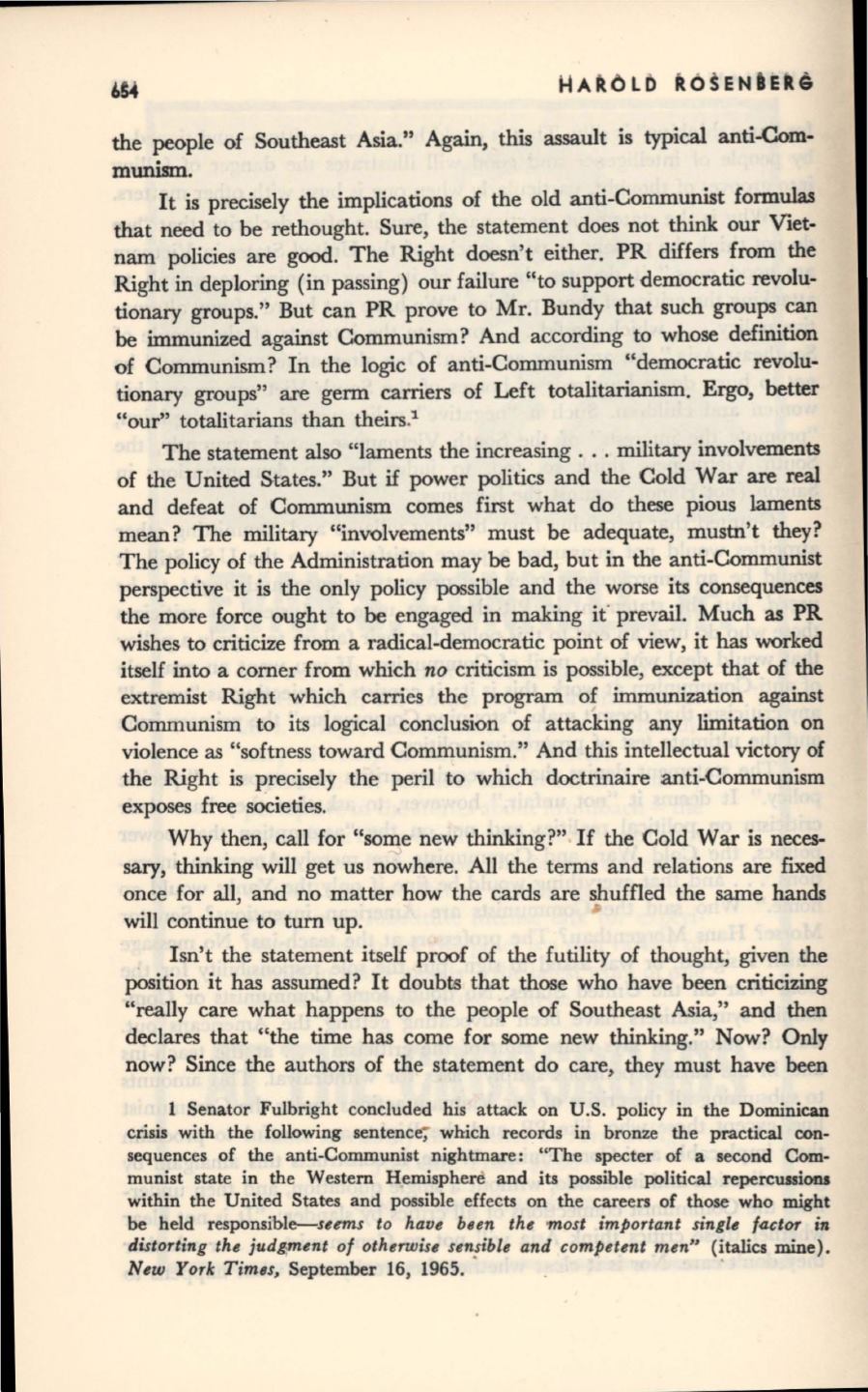
HAROLD R6sEN6Ek&
the people of Southeast Asia." Again, this assault is typical anti-Com–
munism.
It is precisely the implications of the old anti-Communist formulas
that need to be rethought. Sure, the statement does not think our Viet–
nam policies are good. The Right doesn't either. PR differs from the
Right in deploring (in passing) our failure "to support democratic revolu–
tionary groups." But can PR prove to Mr. Bundy that such groups can
be immunized against Communism? And according to whose definition
of Communism? In the logic of anti-Communism "democratic revolu–
tionary groups" are germ carriers of Left totalitarianism. Ergo, better
"our" totalitarians than theirs.
1
The statement also "laments the increasing ... military involvements
of the United States." But if power politics and the Cold War are real
and defeat of Communism comes first what do these pious laments
mean? The military "involvements" must be adequate, mustn't they?
The policy of the Administration may be bad, but in the anti-Communist
perspective it is the only policy possible and the worse its consequences
the more force ought to be engaged in making if prevail. Much as PR
wishes to criticize from a radical-democratic point of view, it
has
worked
itself into a comer from which
no
criticism is possible, except that of the
extremist Right which carries the program of immunization against
Communism to its logical conclusion of attacking any limitation on
violence as "softness toward Communism." And this intellectual victory of
the Right is precisely the peril to which doctrinaire anti-Communism
exposes free societies.
Why then, call for "some new thinking?"
If
the Cold War is neces–
sary, thinking will get us nowhere. All the terms and relations are fixed
once for all, and no matter how the cards are shuffled the same hands
will continue to tum up.
Isn't the statement itself proof of the futility of thought, given the
position it has assumed? It doubts that those who have been criticizing
"really care what happens to the people of Southeast Asia," and then
declares that "the time has come for some new thinking." Now? Only
now? Since the authors of the statement do care, they must have been
1 Senator Fulbright concluded his attack on U .S. policy in the Dominican
crisis with the following sentence;- which records in bronze the practical con–
sequences of the anti-Communist nightmare: "The specter of a second Com–
munist state in the Western Hemisphere and its possible political repercussiollJ
within the United States and possible effects on the careers of those who might
be held responsible--sums
to have bllen the most important single factor in
distorting the jude:ment of otherwise sen! ible and competent men"
(italics mine).
New York Timlls,
September 16, 1965.
.


